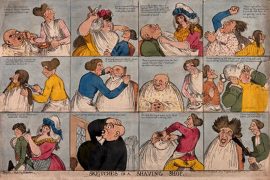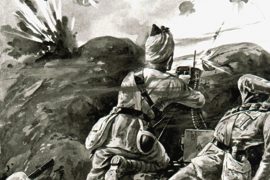Once upon a time, a kind farmer ploughing his field in wintry December happens upon a mouse. He tries his best to assure the terrified creature that he has no intention of causing any harm. He says that it is perfectly understandable for her to be startled although he was her earth-born companion; for it is the excesses of mankind which break Nature’s social union.
His fondness turns to dismay when he realises that he had ploughed through the mouse’s small house, painstakingly built by her over the summer with coarse green foliage. Her cosy winter home razed to the ground, the mouse had to now survive the harsh climate, with little hope.
The undercurrents of sadness and despondency that fill the farmer’s own harsh life find an echo in the plight of the mouse. And he consoles the mouse with the wisdom that “the best-laid plans of mice and men, go askew.” This summarises the poem ‘To a Mouse,’ by the Scottish poet Robert Burns, in which the distinction between man and mouse gets blurred in life’s great plan, which no amount of preparation and foresight can undo.
Why do things not go according to plan? Why is it that one always feels stuck in the slow lane? Why does it rain only when one has forgotten to take the umbrella? Why does a toast falling off a table always land the buttered-side down?
Copyright©Madras Courier, All Rights Reserved. You may share using our article tools. Please don't cut articles from madrascourier.com and redistribute by email, post to the web, mobile phone or social media.Please send in your feed back and comments to [email protected]











